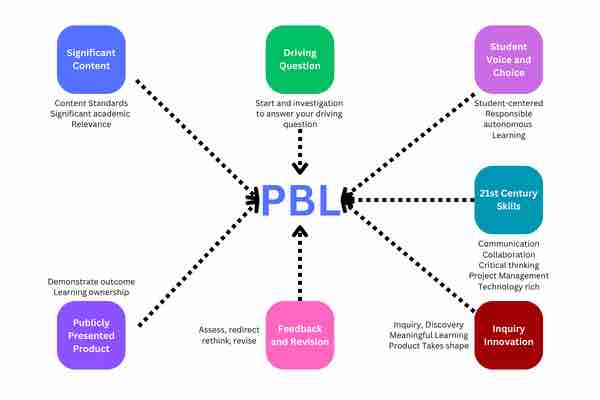Key Components of Project-Based Learning (PBL)

Project-based learning has certain defining characteristics, which, although they might vary slightly from one educational institution to another, remain consistent in essence. These seven characteristics include:
- More engaging and effective than traditional teacher-centered instruction
- Involves complex tasks around a central question, resulting in reflection, iteration, and creation of a final public product
- Surrounds core subject content, allowing students to build knowledge and develop skills like problem-solving, critical thinking, and collaboration
- Takes place in a student-centered learning environment
- Builds student choice into the process
- Develops students’ research and problem-solving skills, that allow for peer review and constructive criticism.
- Positively impacts students, specifically academic achievement, attendance, motivation, knowledge, and cognitive skill development
Buck Institute for Education, also known as PBLWorks, based on 15 years of literature review and distilled educational experience, identified seven essential elements of PBL that focus on project design. These elements, known collectively as “Gold Standard PBL,” are as follows:
- A challenging problem or question
- Sustained inquiry
- Authenticity
- Student voice and choice
- Reflection
- Critique and revision
- Public product
Here are a few related sections to check out:

Understanding Driving Questions
The importance of driving questions in PBL and how to formulate them

Reflection Revision and Public Presentation
The role of reflection, the importance of revision, and presenting findings in PBL

Project Topic Advisor GPT
This is our friendly guide for generating project topics, driving-questions and support materials.

